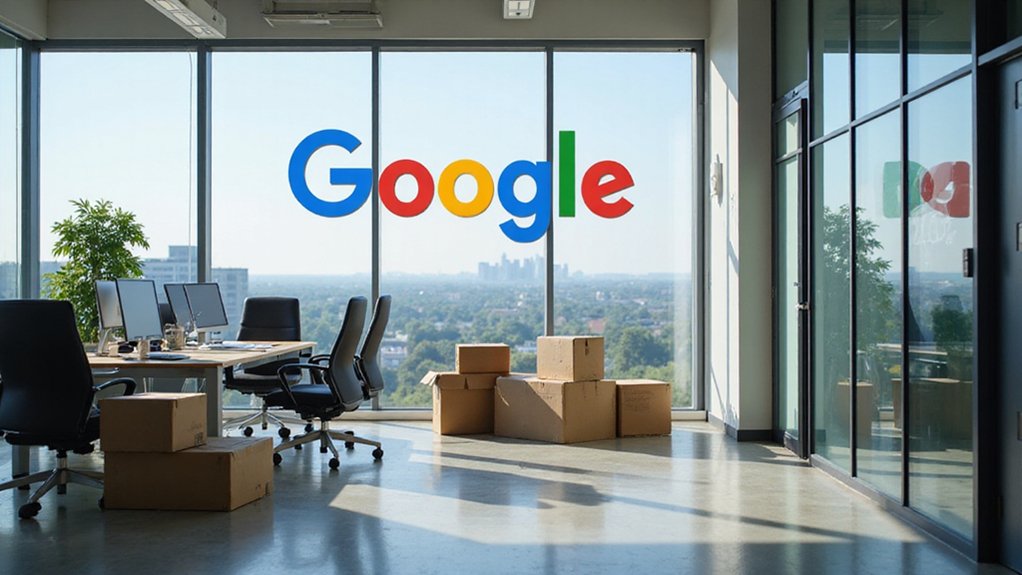After maneuvering a lengthy period of remote work during the pandemic, Google is now reversing course with a stricter in-office mandate. The tech giant is requiring employees in several departments to work from a physical office at least three days per week. Teams affected include Google Technical Services, Human Resources, and Platforms & Devices.
Starting June 2025, staff must relocate within 50 miles of a Google office. Those who don’t comply face two choices: return to the office or accept a voluntary separation package. For some teams, the three-day office requirement is non-negotiable, with job loss as the consequence for those who refuse.
Google employees must relocate near offices by 2025 or face separation, with a three-day office requirement becoming mandatory for many teams.
Google leadership believes in-person collaboration is essential for innovation and solving complex problems. The company specifically points to its AI initiatives as a primary reason for the change. Co-founder Sergey Brin has been vocal about the need for physical presence, sometimes suggesting 60-hour workweeks for AI teams.
This shift creates challenges for employees who previously received approval for full remote work. Many now face difficult decisions about relocating or leaving the company. The shift aligns with research showing AI implementation trends could significantly alter job tasks for 30% of workers. The workforce is already shrinking, down from 190,000 employees in 2023 to 183,000 by the end of 2024.
Google isn’t alone in this move. Other tech companies including Amazon, Dell, and Intel have implemented similar policies. This trend marks a significant shift away from the flexibility workers enjoyed during the pandemic years.
Implementation of the policy varies across Google, happening team by team rather than company-wide. The company is offering a one-time relocation benefit to employees willing to move closer to offices. Some specialized roles may still maintain flexibility, but the overall direction is toward more office time.
Many employees have expressed concerns that the policy will lead to increased commuting costs and disruption of their established work-life balance.
The mandate has sparked debate among employees. While management focuses on innovation and team culture benefits, many workers argue that remote work improves their productivity and well-being.
As the policy rolls out, tensions continue between corporate goals and employee preferences in the changing workplace environment.
References
- https://opentools.ai/news/googles-firm-return-to-office-stance-a-new-work-era-begins
- https://www.outlookbusiness.com/corporate/ultimatum-to-google-employees-working-remotely-in-us-come-to-office-or-leave
- https://www.techrepublic.com/article/news-google-return-to-office/
- https://www.itpro.com/business/business-strategy/google-rto-hybrid-work
- https://hrsea.economictimes.indiatimes.com/news/industry/googles-new-mandate-remote-workers-must-return-to-the-office-or-face-exit/120585859









